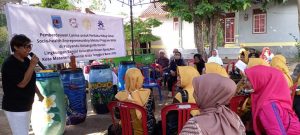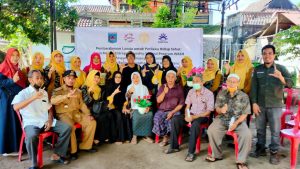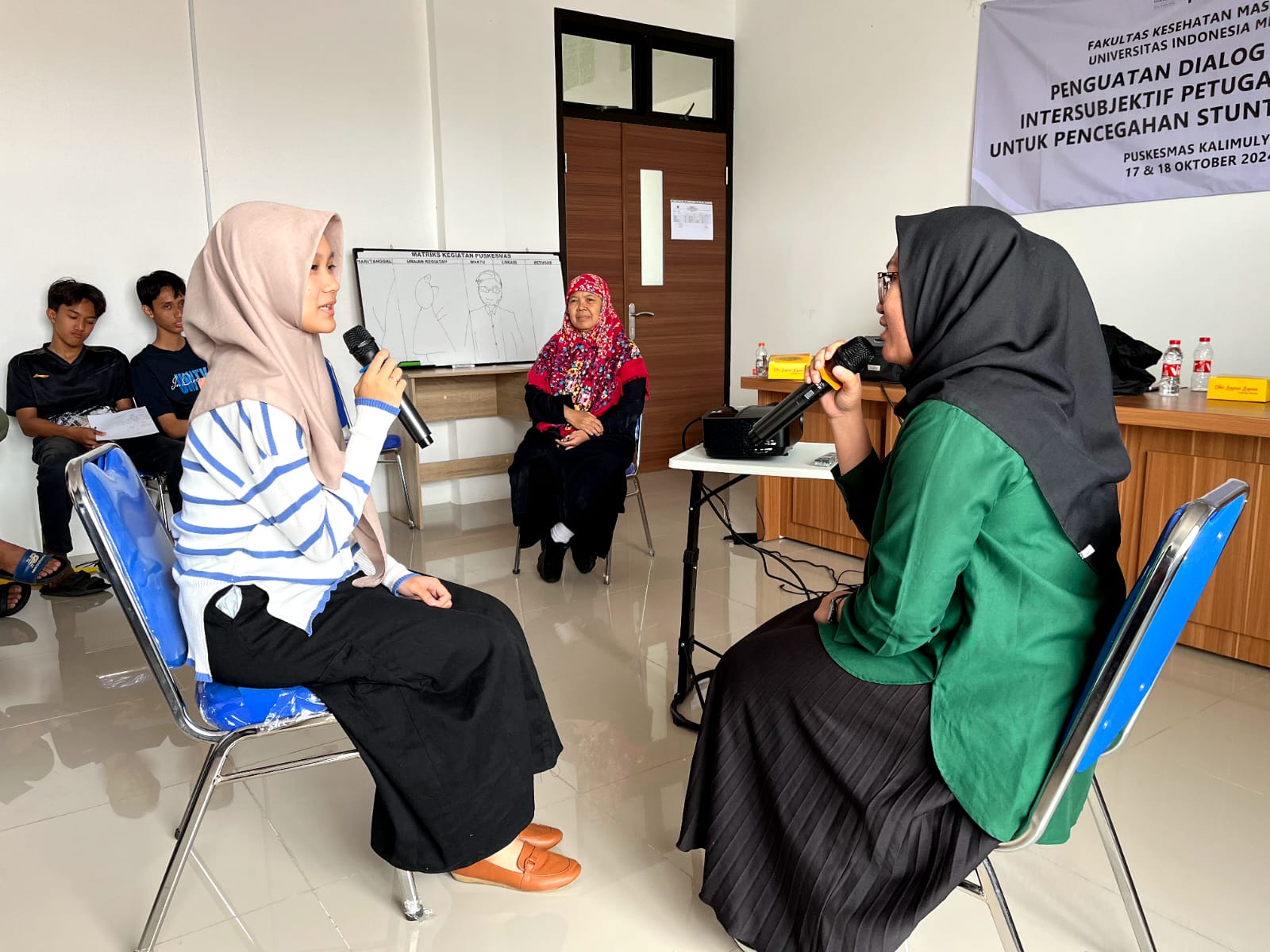
When entering old age (becoming eldery people), humans will experience a decrease in function and ability in the body. This will affect the level of dependence of the elderly on other people.
The government is trying to design and create various programs for empowering the elderly in order to increase the participation of the elderly and extend their productivity. Departing from the condition of the elderly and the desire to empower them, the Faculty of Economics and Business, Universitas Indonesia (FEB UI) conducted community service activities that empowered the elderly to be more productive in managing environmental cleanliness, while optimizing opportunities for economic empowerment from organic waste management, through a Social-Health entrepreneurship empowerment program entitled WASH (Water, Sanitation, and Hygiene).
The head of the community service team, Elvia R. Shauki, Ph.D., said, “The main objective of this activity is to educate and empower the community, especially the elderly vulnerable groups, on water, hygiene and environmental health issues.” This activity is also supported by Yayasan Rumah Senja, which won the AMPL Awards (Air Minum dan Penyehatan Lingkungan, Drinking Water and Environmental Health) from the Ministry of Agrarian and Spatial Planning/ National Land Agency in 2022, the West Nusa Tenggara Provincial Health Office, and the Mataram City Government through Selaparang District and Dasan Agung Baru Village.
Elvia further explained that the impact of this activity can be seen from three perspectives. First, in terms of the environment. This activity can trigger the development of hygienic and sanitary living behavior starting from the household level.
It is hoped that in the future, with a good and massive system, this activity can be replicated to encourage the achievement of one of the pillars of Community-Based Total Sanitation (CBTS) which aims to change hygienic and sanitary behavior through community empowerment. One of the principles in the CBTS pillar, namely securing household waste, is achieved through recycling with one example activity being the sorting of organic kitchen waste to be used as liquid fertilizer using the composting method.
Second, in terms of social impact. The targets of this program are elderly people who have often been negatively stigmatized as unproductive members of society and tend to be a burden. Through this activity, the elderly are empowered, so that they can be more than mere passive beneficiaries, but can also become active agents of change who continuously make positive contributions to development.
Third, the economic impact. One of the outputs of this program is the production of organic liquid fertilizer as the final result of household kitchen-based organic waste management. “One household composter is estimated to produce an average of 20-30 liters of liquid fertilizer every month. One liter of liquid fertilizer can be sold for an average of IDR 3,000/liter. Thus, economically, one household composter can generate IDR 60,000 – IDR 90,000 per month. This is enough to at least pay the Social Security Organizing Agency contribution for the elderly,” said Elvia.
A member of the Community Service team of FEB UI, Desti Fitriani, M.A., in the opening of the WASH workshop added that this program is one of the pilot pentahelix cooperation schemes in helping the government achieve development targets. By involving the elderly to participate, it can also determine the direction of development.
The opening ceremony was attended by a number of local stakeholders, namely the Head of Dasan Agung Village, Mahnum; Selaparang Sub-District Head, Zulkarwin; Head of Rumah Senja Foundation, Romy Hidayat and Head of Public Health Division, West Nusa Tenggara Provincial Health Office, Hj. Tuti Herawati.
Dasan Agung village was chosen as the location of the community service because it has the advantage of having a large number of elderly residents, so that mobilizing the target becomes easier. In addition, this village has also implemented a Regional Regulation on waste management management, which is an important enabling environment aspect in ensuring the sustainability of this community service activity. Another reason is that this village will be encouraged to become an Elderly Friendly village under the umbrella of the Sub-district Selaparang Inclusion program.

After the program is launched, regular monitoring will be conducted to monitor the sustainability of the household organic waste management program in Dasan Agung Village, as well as evaluate the production results in the form of liquid organic fertilizer and solid compost. The results will be taken into account for the planned expansion of similar programs in other wider areas to encourage local community empowerment in managing waste.



